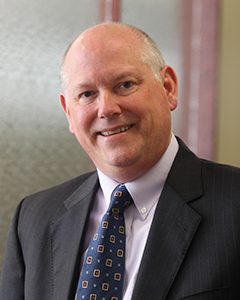Momentum Builds for Auto-IRAs

Momentum for government-facilitated automatic Individual Retirement Account (auto-IRA) savings programs appears to be growing – and, in our opinion, that is a very good thing. The programs are aimed at private sector workers without access to an employer-sponsored retirement plan to instead have access to a state-facilitated plan.
The latest state to jump on the bandwagon is Delaware, where State Rep. Larry Lambert (D) just recently introduced a bill that would require private-sector businesses with five or more employees, and that have been in business in the state for at least six months in the preceding calendar year, to participate in an auto-IRA program.
Employees can opt out of the initiative, called the Expanding Access for Retirement and Necessary Savings (EARNS) program.
According to Delaware State Treasurer Colleen Davis, more than 200,000 workers in The First State currently lack access to an employer-sponsored retirement program. Workers benefit immediately by being automatically included in a retirement plan. “Programs like Delaware EARNS that use auto-enrollment have a 92% participant rate compared to 61% for plans with just a voluntary rate,” she said.
Meanwhile, on May 11, the New York State Assembly passed a bill that automatically enrolls employees at private sector companies with 10 or more employees that do not offer a retirement plan in the Secure Choice Savings program; similar to the Delaware EARNS program, the workers can opt out of participation. Lawmakers cited an Aon Hewitt report which said that employers with auto-enrollment have savings plan participation rates of approximately 83% — 18% higher than at companies without auto-enrollment.
On the same day, New York City Mayor Bill de Blasio signed into law the Retirement Security for All bill, which, like the Delaware bill, affects companies with five or more employees. De Blasio said that about 1.5 million private sector employees in New York City have no access to a retirement savings program through their employer.
The latest data from the Georgetown University Center for Retirement Initiatives finds that 13 states and two cities have now enacted retirement savings programs for private-sector employees, adding that “at least 20 states and cities introduced legislation [in 2021] to establish new programs or form study groups to explore their options.
“Since 2012,” it added, “at least 46 states have acted to implement a new program, study program options, or consider legislation to establish state-facilitated retirement savings programs.”
What is important here is not only offering – at long last – viable retirement savings programs to workers who may otherwise be doing without, but also that they are auto-enroll programs.
We have long maintained that a smart plan design with automatic features — including auto-enrollment and auto-escalation – can better meet the needs of plan participants and providers alike, and can help realize greater retirement readiness. Automation tends to let participants “set it and forget it,” which in today’s ever-busier world is increasingly important.
It is heartening to see so many states and cities taking the retirement savings plight of millions of workers seriously at last. While we would obviously like to see more employers realize the benefits of offering a retirement plan, in lieu of that, these types of state sponsored plans can play a role in filling the holes of the retirement savings gap—a subject we’ve always been passionate about.
About the Author
